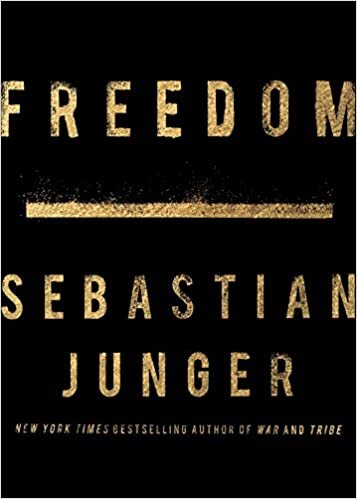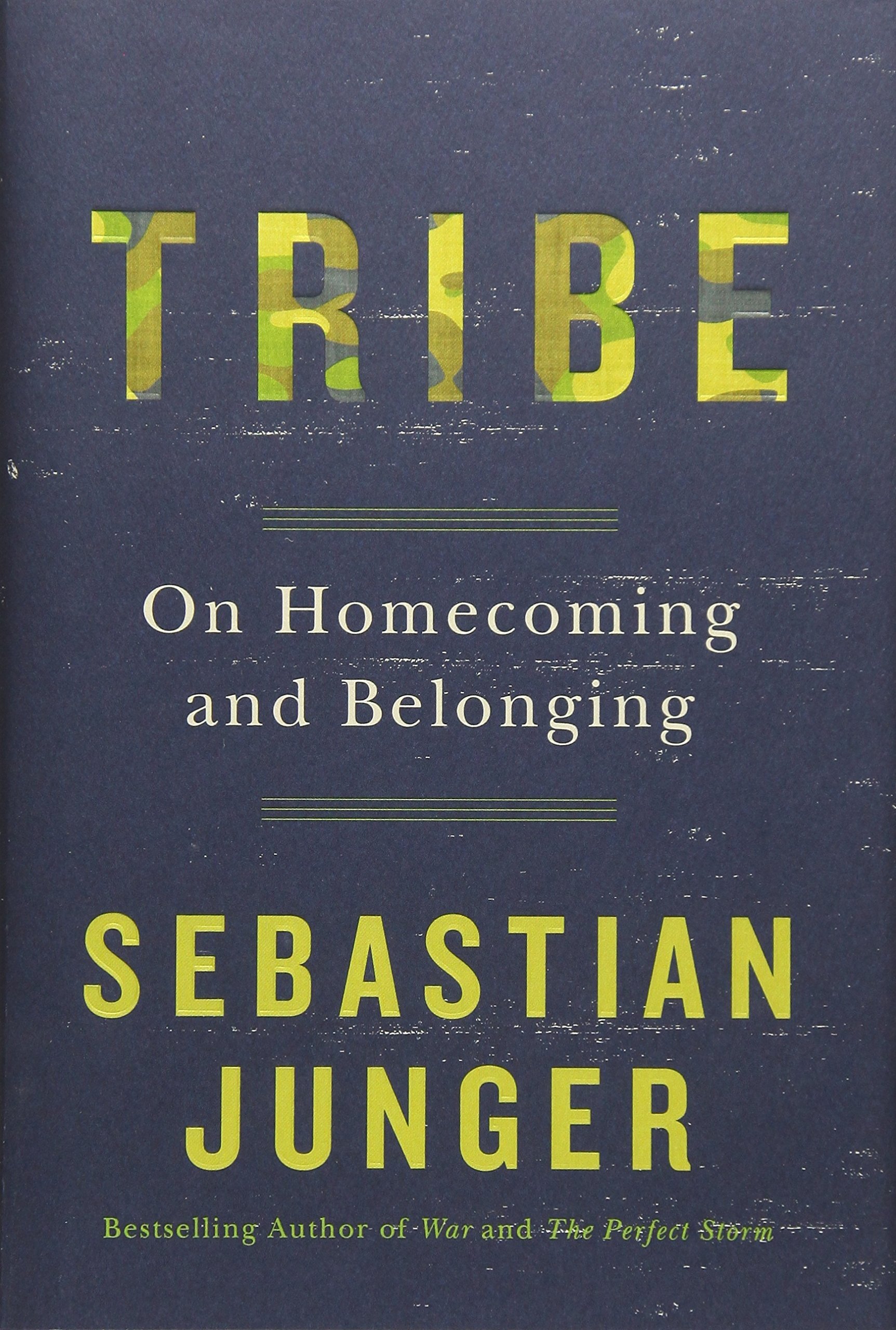My Notes:
Humans don't mind hardship, in fact they thrive on it; what they mind is not feeling necessary. Modern society has perfected the art of making people not feel necessary.
It may say something about human nature that a surprising number of Americans - mostly men - wound up joining Indian society rather than staying in their own...Emigration always seemed to go from the civilized to the tribal.
The intensely communal nature of an Indian tribe held an appeal that the material benefits of Western civilization couldn't necessarily compete with.
Genetic adaptations take around 25,000 years to appear in humans, so the enormous changes that came with agriculture in the last 10,000 years have hardly begun to affect our gene pool.
First agriculture, and then industry, changed two fundamental things about the human experience. The accumulation of personal property allowed people to make more and more individualistic choices about their lives, and those choices unavoidably diminished group efforts toward a common good.
A person living in a modern city or a suburb can, for the first time in history, go through an entire day - or an entire life - mostly encounter complete strangers. They can be surrounded by others and yet feel deeply, dangerously alone.
The evidence that this is hard on us is overwhelming. Although happiness is notoriously subjective and difficult to measure, mental illness is not. Numerous cross-cultural studies have shown that modern society - despite its nearly miraculous advances in medicine, science, and technology - is afflicted with some of the highest rates of depression, schizophrenia, poor health, anxiety, and chronic loneliness.
According to a global survey by the World Health Organization, people in wealthy countries suffer depression at as much as eight times the rate they do in poor countries.
Poor people are forced to share their time and resources more than wealthy people are, and as a result they live in closer communities. Inter-reliant poverty comes with its own stresses - and certainly isn't the American ideal - but it's much closer to our evolutionary heritage than affluence...a wealthy person who has never had to rely on help and resources from his community is leading a privileged life that falls ways outside more than a million years of human experience.
Human beings needs three basic things in order to be content: they need to feel competent at what they do; they need to feel authentic in their lives; and they need to feel connected to others.
"The economic and marketing forces of modern society have engineered an environment...that maximizes consumption at the long-term cost of well-being. In effect, humans have dragged a body with a long hominid history into an overfed, malnourished, sedentary, sunlight-deficient, sleep-deprived, competitive, inequitable, and socially-isolating environment with dire consequences." Journal of Affective Disorders, 2002
Dishonest bankers and welfare or insurance cheats are the modern equivalent of tribe members who quietly steal more than their fair share of meat or other resources.
"Whether...civilization has most promoted or most injured the general happiness of man is a question that may be strongly contested...[both] the most affluent and the most miserable of the human race are to be found in the countries that are called civilized." Thomas Paine, 1795.
Before the war [WW2], projections for psychiatric breakdown in England ran as high as four million people, but as the Blitz progressed, psychiatric hospitals around the country saw admissions go down...Psychiatrists watched in puzzlement as long-standing patients saw their symptoms subside during the period of intense air raids.
Fritz's theory was that modern society has gravely disrupted the social bonds that have always characterized the human experience, and that disasters thrust people back into a more ancient, organic way of relating. Disasters, he proposed, create a "community of sufferers" that allows individuals to experience an immensely reassuring connection to others." It is a kind of fleeting social utopia that, Fritz felt, is enormously gratifying to the average person and downright therapeutic to people suffering from mental illness.
What catastrophes seem to do - sometimes in the span of a few minutes - is turn back the clock on ten thousand years of social evolution. Self-interest gets subsumed into group interest because there is no survival outside group survival, and that creates a social bond that many people sorely miss.
A person's chance of getting chronic PTSD is in great part a function of their experiences before going to war.
A modern soldier returning from combat goes from the kind of close-knit group that humans evolved for, back into a society where most people work outside the home, children are educated by strangers, families are isolated from wider communities and personal gain almost completely eclipses collective good.
Whatever the technological advances of modern society - and they're nearly miraculous - the individualized lifestyles that those technologies seem to spawn seem to be deeply brutalizing to the human spirit.
"In the United States we valorize our vets with words and posters and signs, but we don't give them what's really important to Americans, what really sets you apart as someone who is valuable to society - we don't give them jobs. All the praise in the world doesn't mean anything if you're not recognized by society as someone who can contribute valuable labor." -Sharon Abramowitz
There are many costs to modern society, starting with its toll on the global ecosystem and working one's way down to its toll on the human psyche, but the most dangerous loss may be to community.
The public is often accused of being disconnected from its military, but frankly it's disconnected from just about everything. Farming, mineral extraction, gas and oil production, bulk cargo transport, logging, fishing, infrastructure construction - all the industries that keep the nation going are mostly unacknowledged by the people who depend on them the most.
Littering, perfect example of an everyday symbol of disunity in society. When you throw trash on the ground, you apparently don't see yourself as truly belonging to the world that you're walking around in.
One way to determine what is missing in day-to-day American life may be to examine what behaviors spontaneously arise when that life is disrupted.
We live in a society that is basically at war with itself. People speak with incredible contempt about - depending on their views - the rich, the poor, the educated, the foreign-born, the president, or the entire US government. It's a level of contempt that's usually reserved for enemies in war-time, except that now it's applied to our fellow citizens.
Unlike criticism, contempt is particularly toxic because it assumes a moral superiority in the speaker.
"If you want to make a society work, then you don't keep underscoring the places where you're different - you underscore your shared humanity. I'm appalled by how much people focus on differences." -Rachel Yehuda


